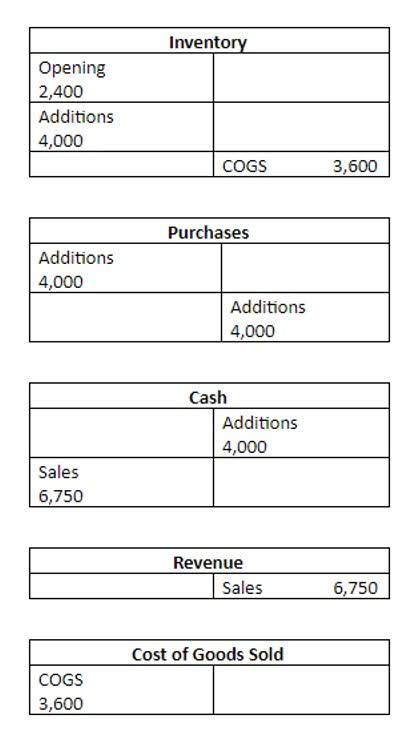
Start building the professional skills you need to get a job as a bookkeeper in under four months with the Intuit Bookkeeping Professional Certificate on Coursera. Learn at your own pace from industry experts while getting hands-on experience working through real-world accounting scenarios. Two of the most common are single-entry bookkeeping and double-entry bookkeeping. Bookkeepers may also share some jobs with accountants, such as the preparation of annual financial reports and tax returns.
Let’s say your HVAC company serviced a customer’s air conditioning system recently. Your bookkeeper may help you generate the invoice, collect a payment, enter the transaction into the general ledger, and document the paid invoice. As a small business owner, one of your primary responsibilities could be keeping tabs on your product inventory and restocking it when needed. When you order inventory, your bookkeeper collects the receipt, enters the transaction into the general ledger, and files the record into your financial database. Accountants are more concerned with the larger picture and use the data bookkeepers keep track of to generate reports, identify important trends, and make projections.
Process
There are some financial tasks that bookkeepers aren’t equipped for; that’s where accountants come in. While bookkeepers record daily transactions, accountants use the information compiled by a bookkeeper to produce financial reports. Accountants, on the other hand, use the information provided by bookkeepers to bookkeeper definition summarize a business’s financial position and render financial advice to the business owner. Many accountants also prepare tax returns, independent audits and certified financial statements for lenders, potential buyers and investors. Bookkeeping is the recording of financial events that take place in a company.
Start by reaching out to other business owners for recommendations, searching online for providers and checking out reviews on Google or Yelp. If you don’t feel comfortable with a freelancer, there are many firms that offer bookkeeping services as well. Proper bookkeeping gives companies a reliable measure of their performance. It also provides information to make general strategic decisions and a benchmark for its revenue and income goals. In short, once a business is up and running, spending extra time and money on maintaining proper records is critical. Responsibilities for bookkeepers can vary widely from business to business, though there are a number of very common bookkeeping responsibilities.
What Does a Bookkeeper Do? A Simple Explanation
Learn more about what bookkeepers do and how to get started in this career. Check out our helpful guide for deciding when is the right time for your business to invest in hiring a bookkeeper. Bookkeepers offer a literal look at where you stand financially at the moment. Accountants take that financial data and help you see the bigger picture and the path your business is on.
- There’s always a demand for experienced, efficient bookkeepers in nearly every industry.
- Many bookkeepers hone and develop their expertise over time while others opt to complete seminars, read books or take online classes.
- However, your bookkeeper can generate internal management reports for your business.
- Take routine bookkeeping off your never-ending to-do list with the help of a certified professional.
- Accountants use the records a bookkeeper provides and their own expertise to help build budgets, assess finances, and make business decisions.
Certifications aren’t necessary to become a bookkeeper but can signal to employers that you have the training and knowledge to meet industry standards. After you have a couple of years of experience, you can earn the Certified Bookkeeper designation from the American Institute of Professional Bookkeepers by passing a series of exams. According to the US Bureau of Labor Statistics (BLS), the median salary for bookkeepers in the US is $45,560 per year as of 2021 [1]. You can sometimes choose between full-time and part-time positions, and you may go to work in an office or work from home.
What a Bookkeeper Should Know
Bookkeepers are not expected to have a four-year or five-year college degree in accounting. Today’s bookkeeper must be comfortable with accounting software such as QuickBooks and electronic worksheets. Being proficient with accounting software allows a bookkeeper to stand out from the others. This content is for information purposes only and should not be considered legal, accounting, or tax advice, or a substitute for obtaining such advice specific to your business. No assurance is given that the information is comprehensive in its coverage or that it is suitable in dealing with a customer’s particular situation.

As bookkeepers work closely with raw data, they tend to develop a good understanding of how a business works. Without bookkeeping, accountants would be unable to successfully provide business owners with the insight they need to make informed financial decisions. Unlike accounting, bookkeeping zeroes in on the administrative side of a business’s financial past and present.
What Does a Bookkeeper Do?
A small business can likely do all its own bookkeeping using accounting software. Many of the operations are automated in the software, making it easy to get accurate debits and credits entered. When an effective bookkeeping system is in place, businesses have the knowledge and information that allows them to make the best financial decisions. Tasks, such as establishing a budget, planning for the next fiscal year and preparing for tax time, are easier when financial records are accurate. Each month, as a general rule, an income statement and a balance sheet are prepared from the trial balance posted in the ledger. The purpose of the income statement or profit-and-loss statement is to present an analysis of the changes that have taken place in the ownership equity as a result of the operations of the period.
The error must be located and rectified, and the totals of the debit column and the credit column recalculated to check for agreement before any further processing can take place. That said, bookkeeping is more than just dropping numbers into a spreadsheet—it takes meticulous analysis and just enough legal know-how. After all, bookkeepers will help you survive an audit by making sure your financial records are in order and your deductions are legal. Plus, anyone who has tried to manage the income and expenses of their own business knows that bookkeepers deserve some serious respect. Today any bookkeeper worth their beans uses some kind of software platform to track finances.
